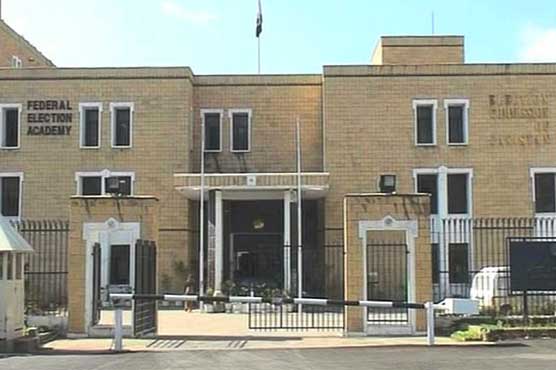
Besides many other programmes of vital nature to make electoral exercise smooth and transparent, it is unlikely that the Election Commission of Pakistan (ECP) would be able to start training of more than 700,000 officials it would be hiring from different government departments to conduct general elections.
Training of this staff needs to be in consonance with the new laws.
ECP forms poll monitoring wing
ECP had planned to start this training from July this year. It needed to prepare training modules and broachers before commencing the exercise, which it could not do so due to the delay in passage of new laws.
If parliament fails to approve new laws by next month, it would badly impact the whole election exercise in a chain reaction, officials feared during informal conversation.
To revamp the country’s election system, a number of new laws are under discussion in parliament. A panel, having representation from all the parties, tagged parliamentary committee on electoral reforms, has been working on electoral reforms since August 2014.
Awareness strategies: ECP starts training of election officers
It was expected that most of the new laws would be approved during National Assembly’s last session which ended abruptly on May 18, apparently due to political bickering without touching any of the dozens of new laws that were supposed to be enacted under the broader electoral reforms package.
The next session due in last week of this month will be on the budget for the next fiscal year. Normally, only money bill is discussed and passed during the budget session. The budget session would be ending somewhere in the mid of June during Ramazan. There are hardly any chances another session would be called during Ramazan. This would for sure lead to delay in training the staff that would be associated in conducing next general elections.
Babar Yaqoob Feteh Muhammad, secretary ECP in a telephonic chat with The Express Tribune shared commission’s apprehensions in case parliament further delays passing of proposed laws.
Explaining the situation, he said since newly proposed laws involve many procedural and technical changes in the conduct of polls, starting training on existing laws would be a futile exercise.
“Many changes are proposed in the new laws.. I can give you a few examples.. like in the new laws it has been proposed to count tender votes, changes are proposed in nomination papers, the mechanism to enhance polling time, new method of formulating polling schemes. We would need to prepare our training modules accordingly,” he said.
Election preparations: With ballot boxes in hand, ECP to start training poll staff
Once ECP prepares these modules, it would first train lead trainers who should be well versed with new laws. The lead trainers would then train the master trainers who would then train more than 700,000 staff, directly involved in holding the elections.
Altogether, ECP would need to hold 25,000 training sessions which should begin from early July to catch up with the schedule.
Implementation on many of the proposed laws would not be possible by next elections already due to the long delay in passing electoral laws.
ECP officials fear as the time is passing, it would become more difficult for the election authorities to implement many more laws. According to ECP officials, even if Parliament legislates the use of Electronic Voting Machines, voters’ biometric identity system, it would not be possible anymore at least for the next general elections.
ECP secretary had recently written a letter to the government mentioning key areas where legislation was needed immediately for smooth election exercise in the next general polls. The areas he had mentioned in his letter were: (a) Delimitation/re-description of constituencies; (b) Revision/updation of electoral rolls; (c) Appointment and training of DROs, ROs, AROs, polling staff; (d) Provision of logistic support to the DROs, ROs, AROs etc.; (e) Preparation of list of polling stations and list of polling personnel; (f) Enlistment of political parties; (g) Finalisation of codes of conduct for political parties, security/polling personnel, media etc. (h) Allocation of symbols; (i) Printing of ballot papers and engagement of printing presses; (j) establishment of Result Management System for election results; (k) Printing of handbooks, manual for training of election officials; (l) Printing of forms / envelopes to be used in different stages of elections; (m) Arrangements for election observers; (n) Appointment of the Appellate and Election Tribunals; and (o) Security measures.






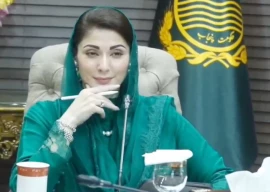
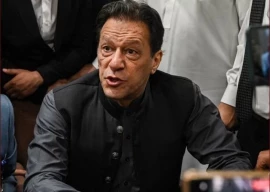
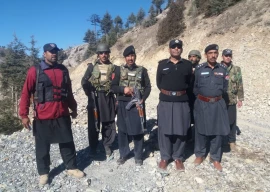


1736508423-0/Express-Tribune---News-Desk-(9)1736508423-0-270x192.webp)


1736495887-0/sidra--(63)1736495887-0-270x192.webp)
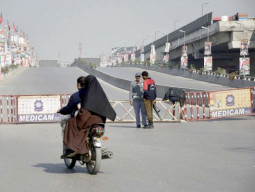
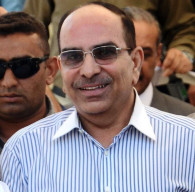






COMMENTS
Comments are moderated and generally will be posted if they are on-topic and not abusive.
For more information, please see our Comments FAQ